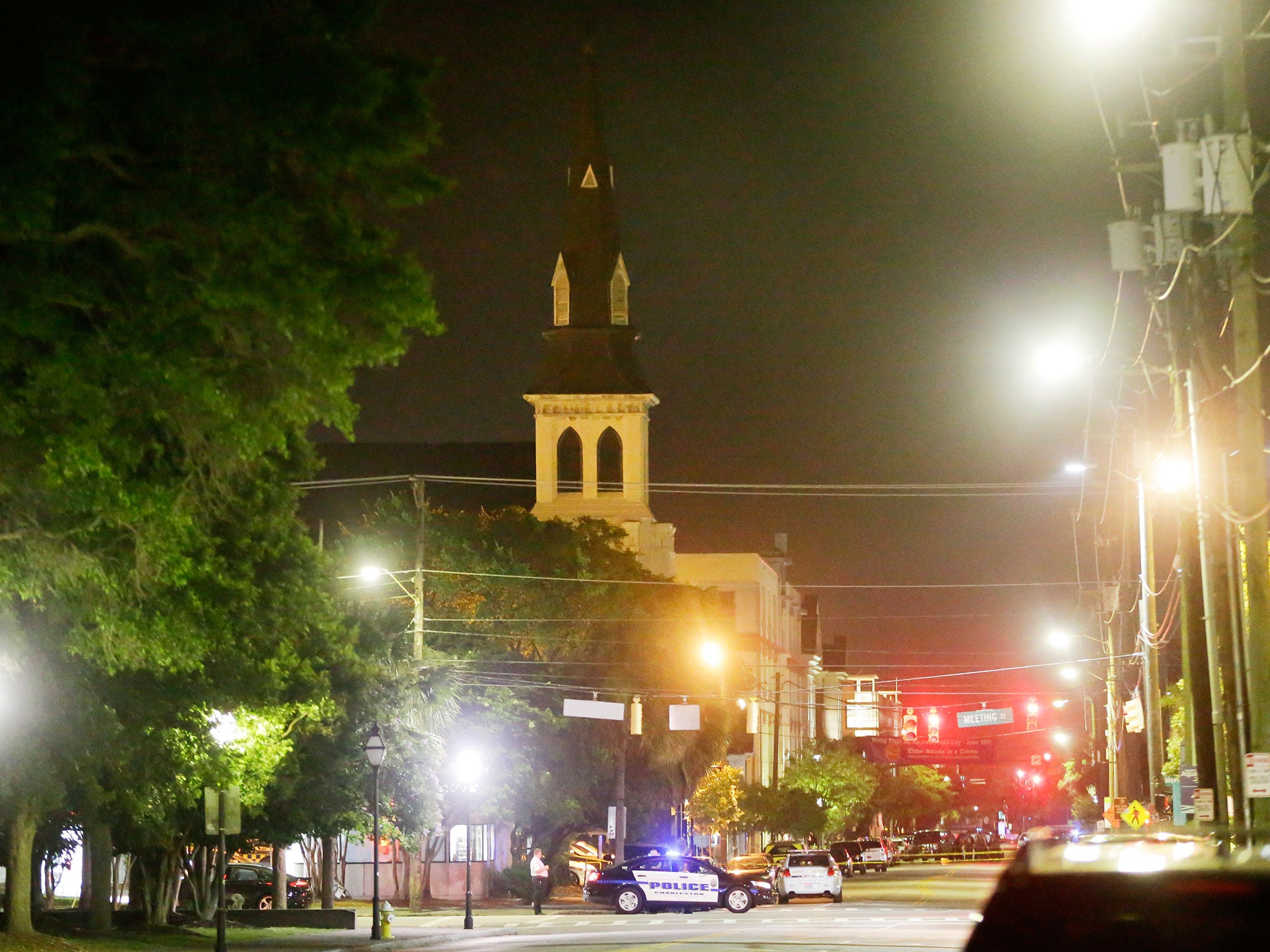Charleston shooting: The nation’s most storied black church is a target of another hate crime
Charleston Mayor Joe Riley described the scene as "the most heartbreaking I have ever witnessed in my life"

Your support helps us to tell the story
From reproductive rights to climate change to Big Tech, The Independent is on the ground when the story is developing. Whether it's investigating the financials of Elon Musk's pro-Trump PAC or producing our latest documentary, 'The A Word', which shines a light on the American women fighting for reproductive rights, we know how important it is to parse out the facts from the messaging.
At such a critical moment in US history, we need reporters on the ground. Your donation allows us to keep sending journalists to speak to both sides of the story.
The Independent is trusted by Americans across the entire political spectrum. And unlike many other quality news outlets, we choose not to lock Americans out of our reporting and analysis with paywalls. We believe quality journalism should be available to everyone, paid for by those who can afford it.
Your support makes all the difference.The Emanuel African Methodist Episcopal Church was the target of hate crime late Wednesday night.
Clementa Pinckney, 41, the pastor of the church and a Democratic State Senator, was among the victims. Mr Pinckney was an advocate for police officers to wear body cameras.
"The only reason someone would walk into a church and shoot people that were praying is out of hate," said Charleston Mayor Joe Riley. He described the scene as "the most heartbreaking I have ever witnessed in my life."
The storied church is one of the nation’s oldest black congregations. Denmark Vesey, the church’s co-founder, attempted to organise a major slave rebellion in 1822. When the plot was eventually discovered, 35 people were executed, and the church was eventually burned down, according to the church’s website. The building was eventually restored and worship services continued.
In 1834, all black churches were outlawed. However, the congregation continued to gather underground until 1865 when it was formally recognized as a place of worship.
Join our commenting forum
Join thought-provoking conversations, follow other Independent readers and see their replies
Comments